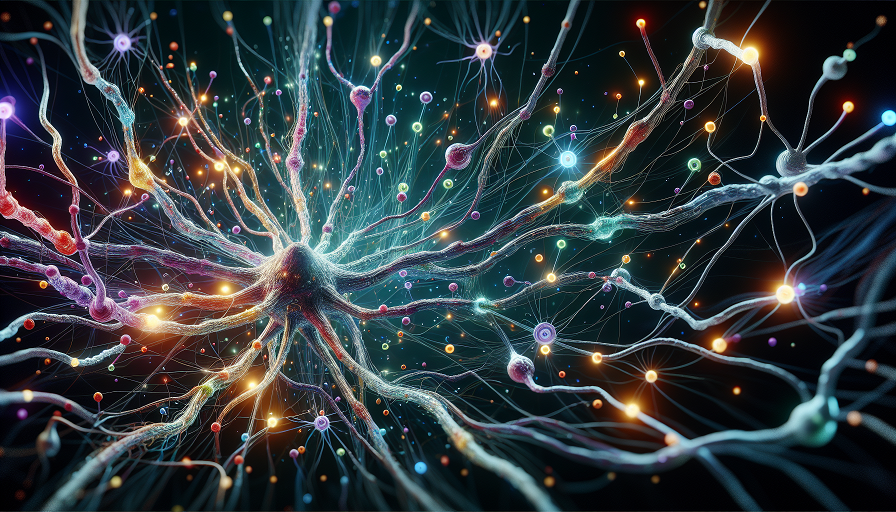
In today’s fast-paced digital world, information is more accessible than ever. We have the vast expanse of the internet at our fingertips, offering an endless stream of content ready for consumption. While this offers tremendous benefits, such as instant access to global news and the ability to connect with people worldwide, it also brings new challenges to our mental health. Among these challenges is scroll fatigue, a new term coined to describe how our brains are responding to the constant influx of information, impacting our attention spans in the process.
Contents
The Rise of Scroll Fatigue
Scroll fatigue is a modern dilemma resulting from our nearly insatiable desire to consume digital content. It refers to the mental exhaustion experienced from the continuous scrolling through social media feeds, news articles, and video platforms. Websites and apps are designed to keep users engaged with endless content, making it difficult to pause, even when we feel overwhelmed. This design taps into our natural curiosity and the fear of missing out (FOMO), encouraging us to consume more without a chance to process what we’ve already taken in.
Why It’s So Easy to Keep Scrolling
Several psychological factors contribute to our tendency to keep scrolling. First and foremost is the concept of variable rewards. Much like a slot machine, scrolling through a feed offers unpredictable “rewards,” like discovering an amusing meme or an interesting article. This variability keeps our brains stimulated and coming back for more. Notifications and alerts further add to the stimulus, continually pulling our attention back to our devices.
Additionally, the infinite scroll design of many apps and websites creates a seamless browsing experience with no end in sight. This has conditioned us to keep scrolling because there’s always the possibility of something new and exciting just below the surface.
Impact on Attention Span
The constant stream of information conditions the brain to switch tasks frequently, making it more difficult to focus on a single task for an extended period. This phenomenon is often referred to as divided attention, where the brain is constantly toggling between multiple streams of information. As a result, the ability to concentrate and focus deeply for prolonged periods may suffer. In turn, this reshapes how we process information, favoring quick, superficial engagement over deep, critical thinking.
The Role of Dopamine
Dopamine, a neurotransmitter linked to pleasure and reward, plays a vital role in scroll fatigue. Each new piece of content provides a small dopamine hit, reinforcing the habit of continuous scrolling. Over time, this can create a cycle where the brain craves these dopamine boosts, making it challenging to step away from devices and return to non-digital activities that don’t offer the same instant rewards.
Strategies to Manage Scroll Fatigue
While the digital world’s allure can be difficult to resist, several strategies can help manage scroll fatigue and potentially restore your attention span. They encourage mindful consumption rather than passive scrolling, offering a more balanced relationship with technology.
Implementing Digital Detoxes
One of the most effective ways to combat scroll fatigue is through a digital detox. By setting boundaries, like designated no-phone times or tech-free zones, you allow your brain to rest and recharge. Start small, perhaps dedicating an hour before bed to be device-free, and gradually increase that time as you become more comfortable. This break from constant information can help alleviate mental overload and reduce reliance on digital devices for entertainment.
Consciously Curating Content
Another strategy is to be selective with the content you consume. Unfollow accounts and unsubscribe from channels that don’t add value to your life. Choose quality over quantity by engaging with content that enriches your life and understanding. This practice not only reduces clutter in your digital spaces but also mitigates the risk of being overwhelmed by irrelevant information.
Leveraging Focus-Enhancing Supplements
Nootropics or brain supplements are becoming popular among those looking to enhance cognitive function and focus. These supplements, like ginkgo biloba, omega-3 fatty acids, and even caffeine, when used responsibly, can support brain health. They may help improve attention, reduce mental fatigue, and boost learning capabilities. However, it’s important to approach these supplements with caution and ideally consult with a healthcare provider to find what’s best for your individual needs.
Encouraging Mindful Technology Use
Mindfulness plays a crucial role in managing our digital interactions. Being aware of how much time you spend online, and the purpose of your browsing, can pave the way for healthier habits. Try setting usage goals and regularly monitoring them, maybe by using apps that track your screen time to give you actionable insights. Understanding the impact of your digital habits can motivate changes that promote healthier brain function.
Practicing Mindfulness Techniques
Beyond simply monitoring usage, integrating mindfulness techniques can improve your overall attention span. Activities like meditation and mindful breathing exercises help train your brain to focus better. These practices not only enhance mental clarity but also provide tools to manage stress, which is often exacerbated by digital overload.
Building Digital Literacy
Another critical aspect of managing scroll fatigue is fostering digital literacy. Understanding how algorithms and digital platforms are designed to capture our attention can empower users to make informed choices about their digital consumption. Educating yourself on these mechanisms can spur more intentional interactions with technology, enabling you to utilize tools and features that enhance productivity rather than hinder it.
The Path Forward
The digital age has brought unprecedented access to information and opportunities to connect. Yet, it’s imperative to acknowledge the impact of our online habits on our brain health. By incorporating strategies like digital detoxes, curating content carefully, exploring the potential of nootropics, and practicing mindfulness, we can regain control over our attention spans. Embracing these approaches creates a more fulfilling and balanced relationship with technology, allowing the brain the chance to reset and thrive in our information-rich world.

